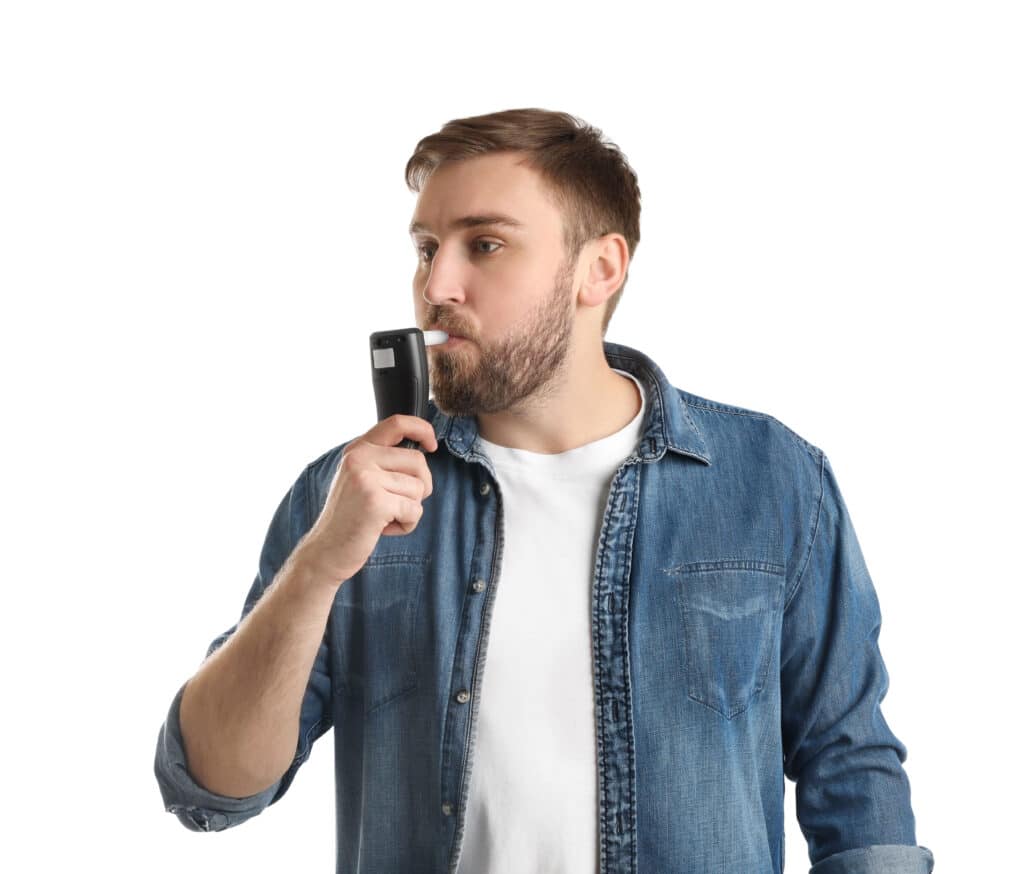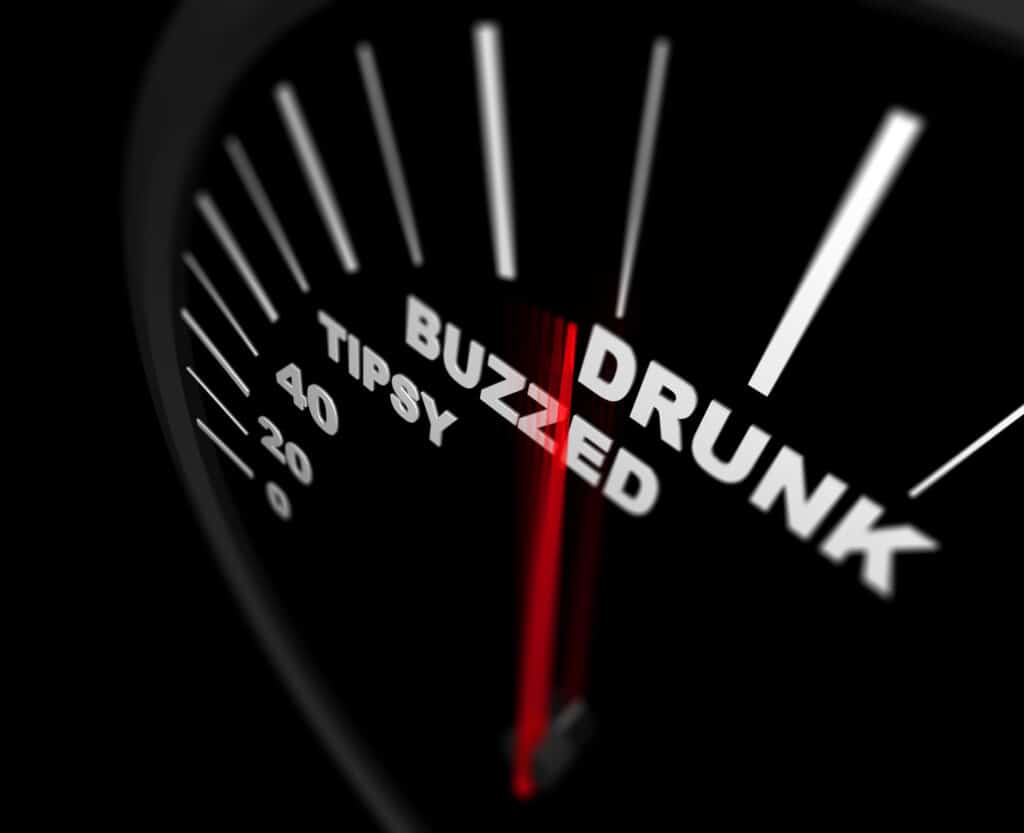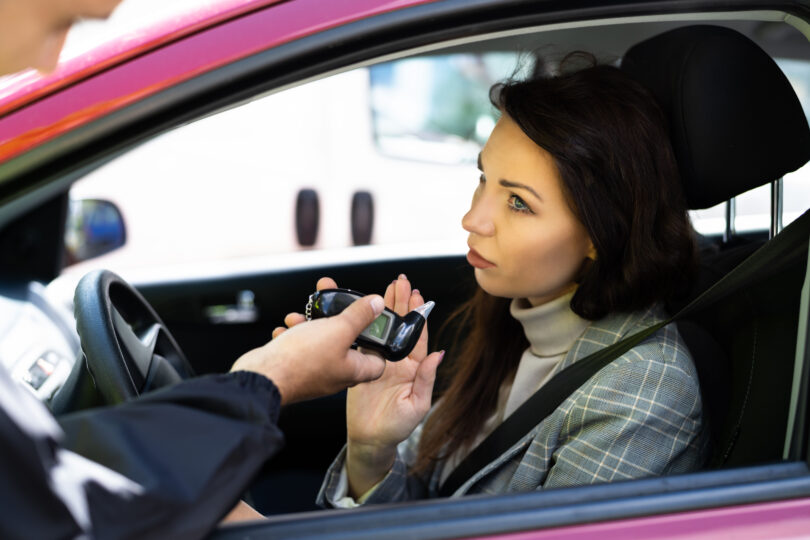We all know if we stop at a check point for drunk driving, there’s a breathalyzer test in our near future. But what about marijuana? Does a breath test work for weed? With states instituting THC limits for driving, is this something we should expect? A recently released federal study addressed this exact issue. Read on for more info.
Differences between marijuana and alcohol
An alcohol breathalyzer test is able to pick up the amount of alcohol in your system, just from your breath. This is because the ethanol in alcohol – that stuff that gets you drunk – comes out in your breath as a vapor. This means when you’re breathing out and have alcohol in your system, a certain amount of the ethanol is coming out as a vapor in each breath.
Think of sitting next to a drunk friend, and the smell of alcohol emanating out. This is why. That aroma wafting out is representative of the amount of alcohol in their system. The amount of alcohol in the vapor corresponds to the amount of ethanol in the bloodstream. In this way, your blood alcohol content is measurable by your breath.
Now think of weed. It doesn’t waft out of a person in the same way. You might smell smoke in clothing, or even a little on the breath; but that doesn’t stick around long after smoking. Right now, if a person is to be tested for a criminal penalty, it must be through blood or urine; though generally blood. Drugged driving laws concerning THC limits, require blood tests. Blood tests are for very recent use, and test the amount of THC in plasma. Urine tests can turn up shaky results as they don’t distinguish between recent use, and use from several weeks before.

Beyond this, there are plenty of differences between alcohol and weed. Some might be a bit subjective, but for the most part, the differences are pretty universal. Alcohol inhibits self-consciousness and personal inhibitions; it makes people feel more powerful, and is associated with people doing things they might not otherwise do. Weed, on the other hand, can certainly change how a person feels, but not generally to a point of being out of control; or without the ability to make rational decisions.
While both weed and alcohol can have an affect on ability to drive, as of yet, weed simply hasn’t been associated with the damage of drunk driving. No one seems able to give a clear answer on whether cannabis is dangerous when driving on a large scale, at all. I expect this is because for those who don’t feel comfortable mixing the two – they probably won’t. Like me. I choose not to, because regardless of how much I smoke, I’m never incapacitated enough to think its a good decision for me specifically. But that’s the thing about alcohol, it so often makes people do things they wouldn’t ordinarily do.
People drink so much they pass out, they throw up, they endure horrible hangovers. They drink so much they kill themselves with it. If you smoke too much weed, you’re liable to get pretty hungry; but not sick, not damaged, not acting like a huge idiot. It should be remembered that despite the bad rap weed still gets due to smear campaigns, there still aren’t direct deaths attached to it. This is in contrast to drinking, which is the #2 death toll substance; and #1 when considering that the #1 – smoking – is not about a specific substance, but merely lighting a substance on fire and breathing it in.
Recent study on the use of breath test technology for weed
The federally funded study, called THC in breath aerosols collected with an impaction filter device before and after legal-market product inhalation—a pilot study, tried to determine if a breath test can be used for weed, the way it is for alcohol. The study was published in the Journal of Breath Research.
In order to test breath for THC, study investigators used an impaction filter to pick up aerosols from the breath of participants. This was done before and after smoking cannabis flower, procured from legal establishments. All flower had 25% delta-9 tetrahydrocannabinolic acid. Before the test collection happened, all participants gave an initial breath test to act as a baseline. This happened four weeks before the test.
For the test, participants had their breath collected two times; first 15 minutes prior to cannabis smoking, and then one hour after. The cannabis was smoked at the participant’s home, but the breath collection was done in a mobile laboratory, stated as federally compliant. Participants were given breathing exercises meant to produce the most aerosols.

Investigators used liquid chromatography for analyzation; along with “tandem mass spectrometry with multiple reaction monitoring of two transitions for analytes and their deuterated internal standards.” The study went on for over one year, involved 18 participants total, and included 42 breath test samples from weed smokers.
Study results for breath test with weed
According to breath analyzation, 31% of participants had THC in their breath at the baseline intake measurement. At the time the actual study measurements were taken, 36% had THC in their breath before smoking for the study, and 80% had THC in their breath an hour after smoking. The data from an hour after smoking was compared to results from six other studies that tested the same thing.
According to the study findings, investigators believe that “THC has extremely low volatility and is hypothesized to be carried in breath by aerosol particles formed from lung surfactant.” They go on, that “Exhaled breath aerosols can be recovered from electrostatic filter devices, but consistent quantitative results across multiple studies have not been demonstrated.” This is easily understood, as all participants supposedly smoked; and a clear 20% didn’t show up positive for THC, specifically after smoking for the study.
They conclude that in order to get a better idea of the situation, more and larger investigations are needed, with more points in time measured after use. As of right now, there isn’t statistically significant data to back up that a breath test is useful for THC detection in a uniform way. So for the present time, and the foreseeable future; if you take a breathalyzer test, its just for drinking.
A couple things to consider
The first thing to consider is that cannabis is ingested in different ways. You drink down alcohol. Period. Sure, there are some people putting it where the sun don’t shine, but that’s very much not the standard. On the other hand, cannabis can be smoked or vaped (which could cause different levels in breath just between the two – we don’t know), put on skin, snorted via the right product, used as a suppository, or swallowed down as a pill or edible. Does a study like this help? If you smoked a joint and your friend ate an edible, would you be the only one to get caught?
Then there’s the issue of, does it matter? Alcohol is associated with a lack of control, destructive decisions, violence, and drunk driving. There’s a huge death toll associated, whether looking at damage done to drinkers, or the damage they cause. There isn’t even a consensus that weed affects driving ability. Plus, some research says there’s a decrease in driving accidents in places with legalization policies. This isn’t 100% confirmed, but it does call into question that smoking weed and driving is being called into question. Having said that, I am personally a fan of safe roadways, and would like more information.

In terms of alcohol, 2016 data released by the CDC states that approximately every 50 minutes someone dies because of a drunk driver. This comes to approximately 29 deaths a day. In 2016 alone, there were 10,497 road deaths attributable to drunk driving, which accounted for 28% of the year’s total road deaths. That year, 17% of the 1,233 children who died on the road, were killed through drunk driving. No one questions whether alcohol causes an issue on roadways. We all know it does. What does it say that no one can make a definitive statement about driving and weed?
Weed isn’t associated with violence. It’s not associated with a total lack of control. It’s not associated with death. The better question to whether a breath test can be used for weed, is why it should be done. To collect fines, perhaps? When something has been around for as long as cannabis, and isn’t associated with things like violence and death, or driving inability (its been around as long as driving has), how is such a study a good use of taxpayer money? And I say that as someone who likes safe roadways.
Conclusion
It’s unclear what the application of a weed breath test is for. Without an association to driving issues, a threat of violence or death, or a cause to worry about destruction… well, it’s hard to understand the motivation. But this is where we are, and sooner or later, it might a standard thing.
Hello readers, cool that you’re here! We appreciate you joining us at Cannadelics.com; a site geared toward independent reporting of the cannabis and hallucinogens landscapes, and way beyond. Don’t be a stranger, you don’t want to miss updates. And check out the Cannadelics Weekly Newsletter, for sweet product offers, along with your news.










Breath tests are not the way. We’ve built an ocular test for real-time impairment at Gaize.ai. It’s based on the tests that police have been doing for decades.